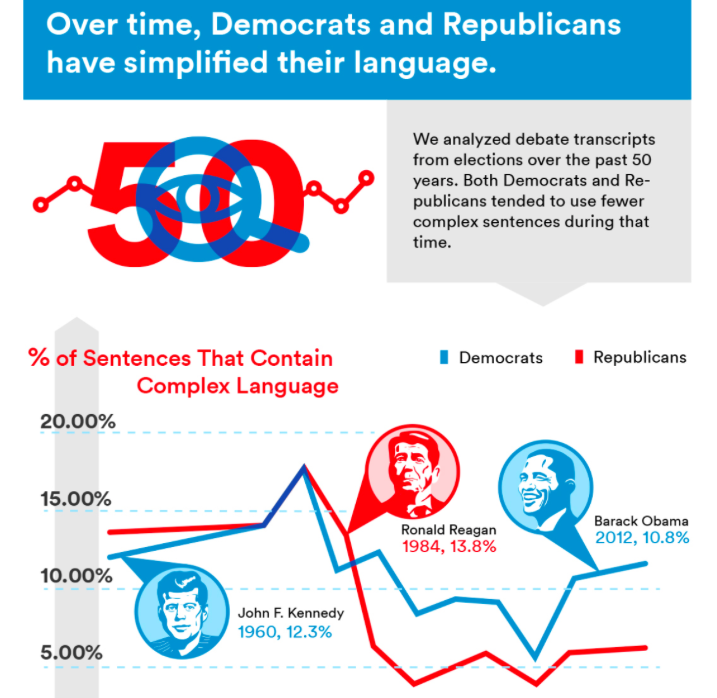Study Shows Political Language Is Changing, Affects Parties Differently
Though we might not think much about them in the context of all the issues discussed during elections, rhetoric and language play a critical role in the success of U.S. presidential candidates. The 2016 presidential election process has been particularly fascinating and prompted us to take a closer look at how election language has changed over time and how it influences candidate success.
In our study, we found:
● the complexity of politicians’ language is decreasing, according to analysis using seven different Grammarly clarity algorithms, such as sentence length and frequency of the passive voice, and
● less complex language correlates with higher poll results for Republican politicians, while simpler rhetoric corresponds to lower poll results for Democrats.
